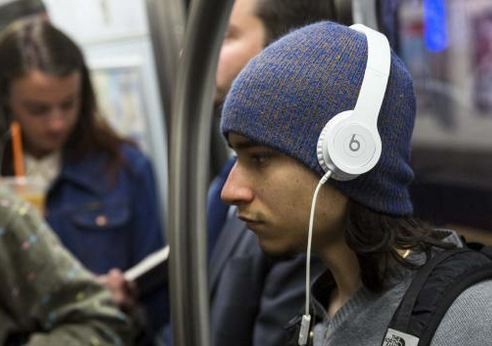The World Health Organization says 1.1 billion people worldwide are at risk of losing their hearing when they listen to audio devices, especially those plugged into their ears.
It also found out that half of 12- to 35-year-olds in high income countries are exposing their ears to "unsafe" sound levels while listening to too loud music on audio devices, said a story in ABC News. Some 40 percent of them are exposed to "potentially damaging" sound levels at music and entertainment venues.
"As they go about their daily lives doing what they enjoy, more and more young people are placing themselves at risk of hearing loss," said Dr. Etienne Krug, WHO Director for the Department for Management of Noncommunicable Diseases, Disability, Violence and Injury Prevention.
"They should be aware that once you lose your hearing, it won't come back. Taking simple preventive actions will allow people to continue to enjoy themselves without putting their hearing at risk."
WHO suggests limiting headphone use to one hour a day and not spending more than eight hours in workplaces with 85 decibels of loud noise like bars, nightclubs and sporting venues.
These places normally have 100 decibels of noise that can cause hearing damage to the ears in as little as 15 minutes.
In comparison the sound in headphones can be increased to a volume of about 110 decibels, which is always unsafe. Talking at a conversational level produces 40 to 60 decibels.
The typical personal audio device has a volume of between 75 and 136 decibels but people normally set their volume at between 75 and 105 decibels, which is still too high, said a report in The Daily Mail.
Hearing damage occurs with repeated or prolonged exposure to loud noises. It can also be caused by a sudden, intense loud noise, damaging the tiny hairs inside the ears.
Some hearing loss is temporary, but some is permanent. If you experience hearing loss or ringing, call your doctor.
To protect one's hearing, WHO recommends wearing earplugs and using carefully fitted and noise cancelling earphones. In addition, people should limit daily use of personal audio devices; take short listening breaks and move away from loud sounds.



























